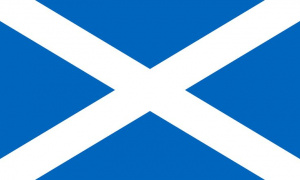Language/Scottish-gaelic/Vocabulary/Describing-Relationships
| ◀️ Family Members — Previous Lesson | Next Lesson — Using Prepositions ▶️ |
Understanding Scottish Gaelic vocabulary related to family and relationships is an important part of communicating effectively in Gaelic-speaking environments. Whether you are simply introducing someone to your family or discussing a more nuanced relationship with a friend, being familiar with common Gaelic phrases and expressions will help you to express yourself clearly and convey your intended meaning.
Vocabulary for Family Members in Scottish Gaelic
Before delving into more complex relationship vocabulary, it is important to be familiar with terms for family members. Below is a table with some of the most common Gaelic words for family members, along with their pronunciation and English translation:
| Scottish Gaelic | Pronunciation | English |
|---|---|---|
| athair | ah-hirr | father |
| mhàthair | va-hirr | mother |
| mac | mahk | son |
| nighean | neen | daughter |
| bràthair | brah-her | brother |
| piuthar | pyoo-har | sister |
| caraid | kuh-ruhdj | friend |
| co-obrachadh | coh-op-rukhugh | colleague |
Note that many Gaelic words for family members can be quite complex and may change depending on the formality of the relationship or other contextual factors. As you become more familiar with Scottish Gaelic, you may find that there are several different words for certain family members or relationships depending on the specific context in which they are used.
Vocabulary for Describing Relationships in Scottish Gaelic
Once you are confident with basic family vocabulary, you can begin to explore more nuanced relationship vocabulary. Below are some examples of common Gaelic phrases and expressions used to describe relationships:
Companionship and Friendship
Whether you are talking about a good friend, a casual acquaintance, or someone you have just met, being able to describe the nature of the relationship can be helpful in setting expectations for interaction. Here are a few examples:
- Caraid: friend
- Luchd-obrach: colleagues, coworkers
- Com-pàirtichean sa sgìre: fellow community members
Romantic Relationships and Love
For those who are looking to express romantic interest or who are looking for words to describe their romantic relationships, Scottish Gaelic also includes a variety of phrases to describe love and affection. Some examples include:
- Gràdh: love
- Fear-cèile: spouse, partner
- Cridhe rùn: beloved
Family Relationships
Finally, Gaelic speakers also use a variety of words to describe different types of family relationships. Whether you are discussing parent-child relationships, sibling relationships, or other family dynamics, being familiar with Gaelic vocabulary will allow you to communicate clearly and effectively. Some common phrases include:
- Màthair-fhear FO-sgoile: stay-at-home mother
- Com-pàirteach anns an obair chruaidh: partner in hard work, i.e. a spouse who works with you on the land or at sea
- Ràinig sinn na dàna le chèile: we've arrived at the age of discretion/can marry and beget kids legally
Practical Usage Tips
It is one thing to be familiar with vocabulary related to family and relationships, but it is quite another to use these expressions appropriately and in context. Here are a few practical tips to help ensure that your Gaelic communication is effective and clear:
- Pay attention to context. Depending on your relationship with the person you are speaking to, the context of the conversation, and the regional dialect of the speaker or the listener, the meaning of words and phrases may vary.
- Be respectful. When discussing delicate or sensitive topics, using the appropriate vocabulary and speaking in a respectful tone is important.
- Listen attentively. When speaking with others, be sure to listen carefully to their responses to ensure that you are conveying your intended meaning and that the conversation is progressing smoothly.
- Practice, practice, practice. As with any new language, becoming proficient in Scottish Gaelic requires plenty of practice and repetition. Don't be afraid to seek out feedback from others, and commit to regular practice to build your skills over time.
Conclusion
Being able to describe relationships and understand family vocabulary is an important part of communicating effectively in Scottish Gaelic. With practice and a bit of effort, you can develop your Gaelic skills and become a more confident speaker.
Other Lessons[edit | edit source]
- Post Office
- Food
- Weather
- Months of the Year
- How to Say Hello and Greetings
- Drinks
- Meals and Beverages
- Education
- Family Members
- Travel Related Phrases
| ◀️ Family Members — Previous Lesson | Next Lesson — Using Prepositions ▶️ |

